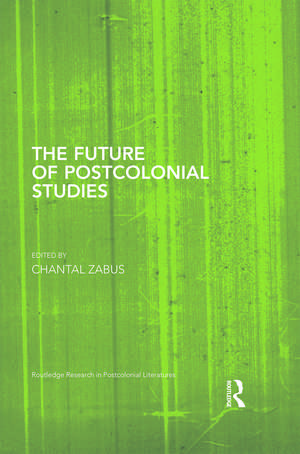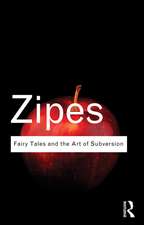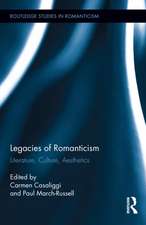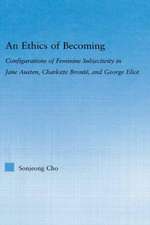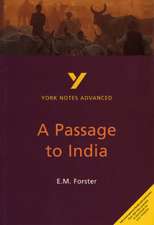The Future of Postcolonial Studies: Routledge Research in Postcolonial Literatures
Editat de Chantal Zabusen Limba Engleză Hardback – 9 dec 2014
The postcolonial is a centrifugal force that continues to energize globalization, transnational, diaspora, area and queer studies. Spanning the colonial period from the 1860s to the present, The Future of Postcolonial Studies ventures into other postcolonies outside of the Anglophone purview. In reassessing the nation-state, language, race, religion, sexuality, the environment, and the very idea of 'the future,' this volume reasserts the notion that postcolonial is an "anticipatory discourse" and bears testimony to the driving energy and thus the future of postcolonial studies.
| Toate formatele și edițiile | Preț | Express |
|---|---|---|
| Paperback (1) | 449.41 lei 6-8 săpt. | |
| Taylor & Francis – 6 feb 2018 | 449.41 lei 6-8 săpt. | |
| Hardback (1) | 1056.32 lei 6-8 săpt. | |
| Taylor & Francis – 9 dec 2014 | 1056.32 lei 6-8 săpt. |
Din seria Routledge Research in Postcolonial Literatures
-
 Preț: 311.41 lei
Preț: 311.41 lei - 9%
 Preț: 1003.54 lei
Preț: 1003.54 lei -
 Preț: 311.41 lei
Preț: 311.41 lei -
 Preț: 393.06 lei
Preț: 393.06 lei -
 Preț: 280.99 lei
Preț: 280.99 lei -
 Preț: 311.43 lei
Preț: 311.43 lei - 18%
 Preț: 1058.19 lei
Preț: 1058.19 lei -
 Preț: 344.32 lei
Preț: 344.32 lei - 18%
 Preț: 1112.65 lei
Preț: 1112.65 lei - 18%
 Preț: 1110.77 lei
Preț: 1110.77 lei - 26%
 Preț: 820.71 lei
Preț: 820.71 lei - 18%
 Preț: 1055.51 lei
Preț: 1055.51 lei - 18%
 Preț: 1005.39 lei
Preț: 1005.39 lei -
 Preț: 441.74 lei
Preț: 441.74 lei - 18%
 Preț: 1054.89 lei
Preț: 1054.89 lei - 18%
 Preț: 1112.34 lei
Preț: 1112.34 lei - 18%
 Preț: 1058.43 lei
Preț: 1058.43 lei -
 Preț: 462.81 lei
Preț: 462.81 lei -
 Preț: 463.14 lei
Preț: 463.14 lei - 18%
 Preț: 1055.32 lei
Preț: 1055.32 lei -
 Preț: 443.65 lei
Preț: 443.65 lei - 29%
 Preț: 260.33 lei
Preț: 260.33 lei - 18%
 Preț: 1054.71 lei
Preț: 1054.71 lei - 18%
 Preț: 1004.34 lei
Preț: 1004.34 lei - 18%
 Preț: 1056.63 lei
Preț: 1056.63 lei -
 Preț: 389.66 lei
Preț: 389.66 lei -
 Preț: 482.94 lei
Preț: 482.94 lei - 18%
 Preț: 1104.48 lei
Preț: 1104.48 lei - 18%
 Preț: 1114.30 lei
Preț: 1114.30 lei - 18%
 Preț: 1000.30 lei
Preț: 1000.30 lei - 18%
 Preț: 1057.09 lei
Preț: 1057.09 lei -
 Preț: 485.99 lei
Preț: 485.99 lei -
 Preț: 485.24 lei
Preț: 485.24 lei - 12%
 Preț: 339.94 lei
Preț: 339.94 lei - 18%
 Preț: 1053.16 lei
Preț: 1053.16 lei - 18%
 Preț: 1051.60 lei
Preț: 1051.60 lei -
 Preț: 384.86 lei
Preț: 384.86 lei - 18%
 Preț: 1006.77 lei
Preț: 1006.77 lei - 18%
 Preț: 1111.51 lei
Preț: 1111.51 lei - 18%
 Preț: 969.71 lei
Preț: 969.71 lei - 18%
 Preț: 1007.48 lei
Preț: 1007.48 lei
Preț: 1056.32 lei
Preț vechi: 1288.19 lei
-18% Nou
Puncte Express: 1584
Preț estimativ în valută:
202.12€ • 211.05$ • 166.91£
202.12€ • 211.05$ • 166.91£
Carte tipărită la comandă
Livrare economică 15-29 aprilie
Preluare comenzi: 021 569.72.76
Specificații
ISBN-13: 9780415714266
ISBN-10: 0415714265
Pagini: 248
Ilustrații: 1 black & white halftones
Dimensiuni: 152 x 229 x 20 mm
Greutate: 0.5 kg
Ediția:1
Editura: Taylor & Francis
Colecția Routledge
Seria Routledge Research in Postcolonial Literatures
Locul publicării:Oxford, United Kingdom
ISBN-10: 0415714265
Pagini: 248
Ilustrații: 1 black & white halftones
Dimensiuni: 152 x 229 x 20 mm
Greutate: 0.5 kg
Ediția:1
Editura: Taylor & Francis
Colecția Routledge
Seria Routledge Research in Postcolonial Literatures
Locul publicării:Oxford, United Kingdom
Public țintă
Postgraduate and UndergraduateCuprins
Introduction: The Future of Postcolonial Studies Chantal Zabus Part I: Comparing 1. Postcolonial Studies in French-speaking Areas: France, Francophonie, and the World Jean-Marc Moura 2. ‘We’ve Done Our Bit, Too!’: Crossover Literatures, Postcolonial Studies, and the Reception of Postcolonial Writing in Italy Silvia Albertazzi 3. Future Linguistic Approaches to African Literature Vicki Briault-Manus Part II: Converting 4. Conversion, Identity and Resistance in Colonial and Postcolonial Space: The Writings of Tiyo Soga 1829-1871 Gareth Griffiths 5. Island Hinduism: Religion and Modernity in Francophone Indian Ocean Literature Srilata Ravi 6. Fundamentalism and Postcoloniality: Beyond ‘Westoxification’? Klaus Stierstorfer Part III: Greening 7. Greening in Contemporary Arabic Literature: The Transformation of Mythic Motifs in Postcolonial Discourse Ferial J. Ghazoul 8. Notes on the Postcolonial Arctic Graham Huggan 9. Animals, Environment and Post-Colonial Futures Helen Tiffin Part IV: Queering 10. Postcolonially Queer: Sexual Dissidence as Cultural Struggle in Emergent Democracies in Africa William J. Spurlin 11. Writing Queer in South Africa: Poetry versus Identity – A Creative Response Joan Hambidge 12. The Queer Writes Back: Australia David Coad Part V: Utopia 13. The Transgendered Nation: Intersexions between the Transnation and the Transsexual Subject Chantal Zabus 14. Imperial Diversity: War, Post-humanism, and the Futures of Postcolonial Studies Mike Hill 15. Future Thinking: Postcolonial Utopianism Bill Ashcroft
Descriere
This book celebrates the twenty-fifth anniversary of the publication of The Empire Writes Back by the now famous troika - Bill Ashcroft, Gareth Griffiths and Helen Tiffin. The postcolonial is a centrifugal force that continues to energize globalization, transnational, diaspora, area and queer studies. Spanning the colonial period from the 1860s to the present, The Future of Postcolonial Studies ventures into other postcolonies outside of the Anglophone purview. In reassessing the nation-state, language, race, religion, sexuality, the environment, and the very idea of 'the future,' this volume bears testimony to the driving energy and thus the future of postcolonial studies.
